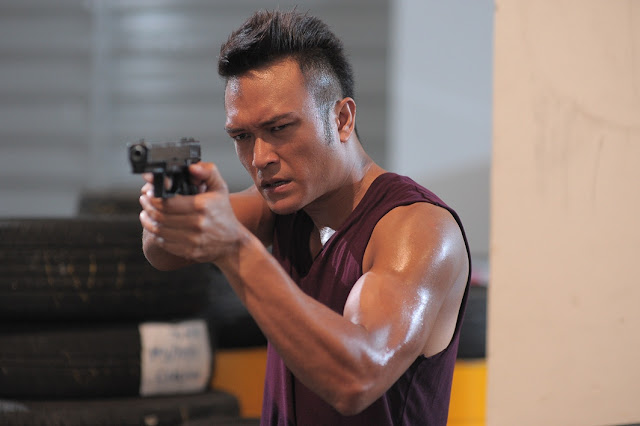Yesterday theSun run a story I did to
celebrate our 58th Independence Day. Here is the full story
Headline: Malaysia In Their Eyes
By Bissme S
Today, as we
celebrate our 58th Independence Day, we invite three foreign-born individuals –
two who are now permanent residents and one who is now a Malaysian citizen – to
tell us their experience of becoming a part of this nation. They may not have
been born here, but they have come to love their adopted country and now look
upon it as their homeland.
 |
| Shantha with her three grandchildren |
*Shantha A. was born and raised in
Madurai, India. She got married there to P. Subramaniam, a Malaysian
technician, in September 1960. Two weeks later, her husband had to return to
Malaysia, and nine months later, she followed him as an 18-year-old bride. That
was 54 years ago.
“I had to travel alone and I also had to
stay on the ship for a week,” recalls Shantha, 73, who lives in Seremban.
“That was my first time [travelling]
anywhere outside of India.”
It was her mother and younger brother
who sent her to the port in Madras with tears in their eyes.
“I cried because I was very close to my
family and I knew I was going to miss them very much,” she says.
In 1967, Shantha officially became a
Malaysian citizen.
“People in Malaysia are nice and
friendly,” says the mother of five girls and grandmother of three
granddaughters. She adds that her friends and neighbours made her feel
comfortable when she first arrived.
“As a result, I did not feel homesick
and I could adapt to my new life in Malaysia easily.”
She also had no difficulty picking up
Bahasa Malaysia. She loves the many different foods here such as nasi lemak,
lemang, chicken rendang and tom yam, and Malaysian fruits like durian and
manggis which are not available in India.
One thing Shantha does not take for
granted about Malaysia is the fact that the people here live together
harmoniously despite being of different races. She says: “It is admirable that
every religion has a place of worship here. “Malaysian culture is also so
colourful and exciting because the people celebrate the many festivals of the
various races.”
----------------------------------------------------------------------------
----------------------------------------------------------------------------
 |
| Oh Jun in his hair saloon in Jalan Ampang |
*Oh Jun was running a successful hair
salon in his native South Korea but decided to migrate to Bangkok, Thailand, in
1999, as he wanted a change of scenery.
“I wanted a place that is more relaxed,”
says the 47-yearold professional hairstylist. In 2003, he visited Kuala Lumpur
for the first time and fell
madly in love with the city.
“KL is a city with a soul,” he says.
“You can see green everywhere and people
here are friendly.”
Oh did not think twice about making
Kuala Lumpur his new home though he had to start from scratch to open a salon
in Jalan Ampang. Today, he cherishes the fact that he gets to enjoy the various
cultures of different races. He visits his Muslim friends on Hari Raya, wearing
baju Melayu, and has even attended a Hindu wedding where he was served banana
leaf rice. This year marks his 12th year in Kuala Lumpur.
“Now,whenever
I visit my family and friends in Korea, I will miss Kuala Lumpur very much,” he
says.
----------------------------------------------------------------------------------------
 |
| Joe found love and a menaingful life in Malaysia |
*Joe Hasham was born in Tripoli,
Lebanon, and raised in Australia. But he has been living in this country for
the last 31 years since he migrated here in 1984 with the aim of finding more
business opportunities for his advertising agency. Over time, Malaysia has
grown on him and his love for this country has grown as well. It was here that
he found the love of his life, renowned theatre actress Datuk Faridah Merican.
They married in 1989 and the two have played a vital role in the growth of
Malaysian theatre.
“There are many things to like about
Malaysia,” says Joe, 66, pointing to the country’s reputation as a haven for
all kinds of delicious food.
“The best thing is that you can get food
24 hours a day. Eating has become our national pastime.”
When asked what will make Malaysia
better in his eyes, he says: “I just wish Malaysia had four seasons. I had that
in Australia and I miss not having that in Malaysia. It is always summer in
Malaysia.”
But he adds: “I love my life choices here. I believe what I am doing
here is meaningful.






















